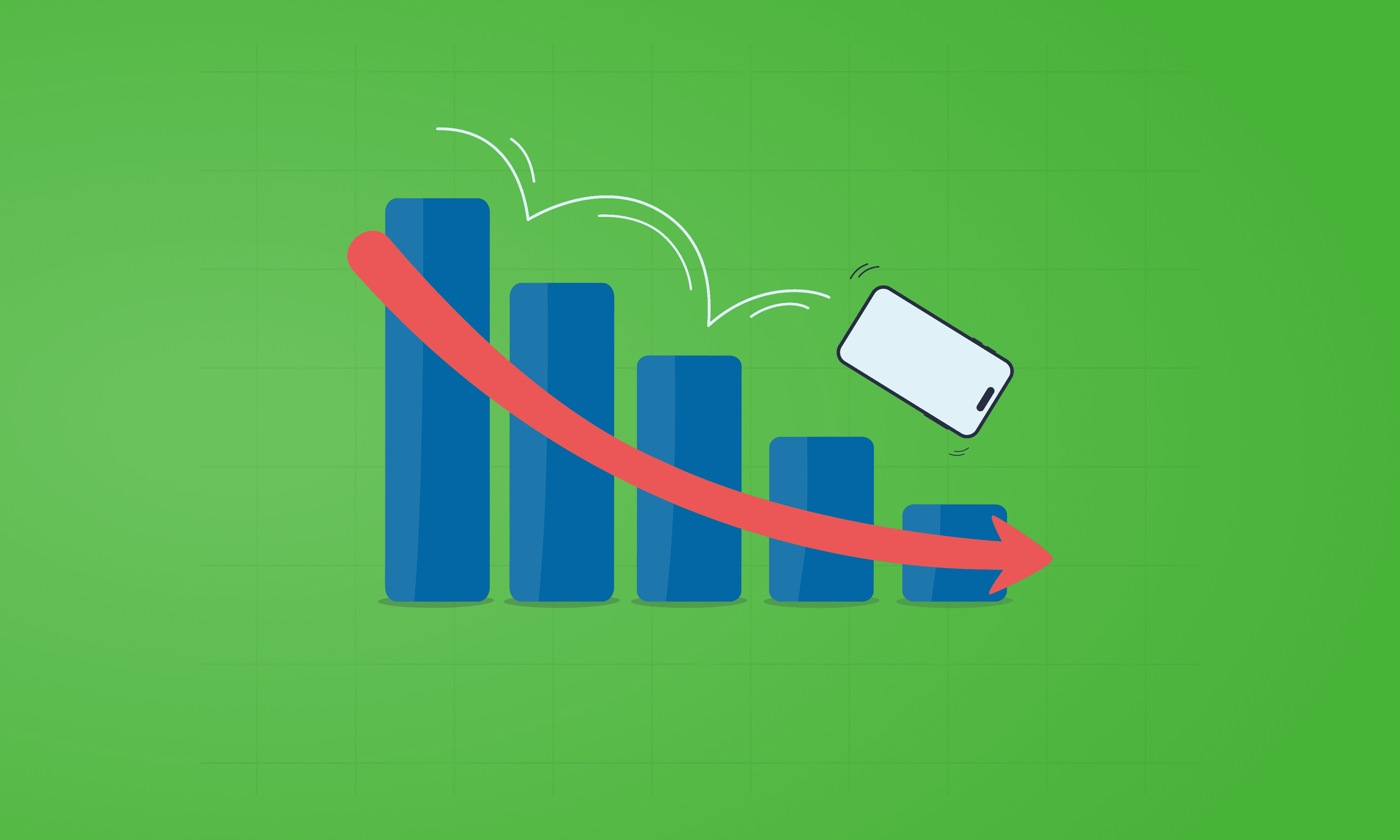No-mobile-phone phobia is real making smartphones the biggest modern-day addiction.

Written by Yasmin Maagbe, Content and PR Executive | Environment and Consumer Electronics
Last updated on 17 December 2025

What is the biggest addiction of the 21st century? The smartphone has a strong case of being number one. In a dramatic shift that has occurred over the past 20 years, we've gone from having a simple communication device on our person to having the world at our fingertips.
According to recent research by dscout, the average phone user touches their device almost 2,617 times a day. Apple also revealed that iPhone users unlock their phones around 80 times a day.
Undoubtedly, smartphones are in constant use and many of us are completely addicted to our devices. We have become so hooked that there is a name for our urge to keep phones handy: ‘nomophobia’ (which stands for no mobile phone phobia).
Nomophobia is not listed in the Diagnostic and Statistical Manual of Mental Disorders (DSM) yet, but there are various studies which suggest that nomophobia could affect up to 50% of phone users.
In this article:
Nomophobia is not uncommon. Many of us are probably experiencing it in one way or another. However, it is not something that will make us ditch our phones anytime soon. A better approach would be to figure out more effective ways to interact with our smartphones and to ensure that we are not succumbing to nomophobia at all. Here are a few tips to overcome nomophobia:
The main reason why you are driven to use your phone so much is because of how it has been designed to attract your attention. Think about how you feel every time when you get a buzz or ping from your phone.
What is it that excites you the most? A text? A ping? An important email? A meme that you've been tagged in?
These ‘variable rewards’ are what entice us. When our phone vibrates, it creates a knowledge gap and that is what makes us restless to dive in and see what the notification is for.
Studies have shown that ignoring smartphone notifications can cause more feelings of anxiety. A better way to go about this would be to change your relationship with your smartphone entirely so that you are only being notified about what's important.
There are three main types of notifications:
For the first type (Instant), you must have notifications set up which can include texts, phone calls, or other messages you consider important. In the second category (Relevant), you must turn off all sound notifications except for the icon badges. This way, you can ensure that you don’t miss out on something important. For the third category (Kill), all notifications should be turned off.
You should start by moving some apps into your Kill list and then go from there. If you make these changes, it can help you to lessen the desire to check your phone all the time.
Relevant reading:
Dr David Greenfield, the founder of the Centre of Internet and Addiction Technology in the US, says that every notification we receive elevates our dopamine levels.
The thing is you don't know what it's going to be or when you're going to get it, and that's what compels the brain to keep checking. It's like the world's smallest slot machine. - Dr David Greenfield, the founder of the Centre of Internet and Addiction Technology in the US
Generally, whether it is in our pocket or lying out there on the table, our phones are always in our nearest reach. As it’s constantly available around us, it even adds to our phone-induced anxiety. There are studies which have shown that almost 90% of people suffer from ringxiety - when you wrongly feel that your phone is ringing in your pocket. When your phone is always near your body, it almost becomes an extension of your body.
The best way to be less attached to your phone is to set up "phone stations" where you keep your phone when you're at home and move your charger outside of your bedroom. Keeping your phone further away will teach you to slowly break the addiction of having your phone nearby at all times.
You might think that to fight nomophobia, refraining yourself from the grip of your smartphone is enough. But this is not exactly the case. Every choice you make in your day to day life matters.
According to researchers, we make no less than 35,000 choices each day. As we dive further into our day, something called ego depletion occurs. It stands to using up willpower on one decision in life and letting it be less available for the next one. With nomophobia, if you constantly make choices to not check your phone, you will become fatigued.
Therefore, you should try to eliminate all of these unnecessary decisions. This could include deleting apps which unnecessarily keep you engaged or using Focus Modes to block useless notifications from various sites.

Digicam trend drives 979% spike in iPhone 4 demand and here's what you need to know before using one.

The iPhone used to define innovation. Now every new model feels the same. Is Apple’s story running out of pages?

See which Apple, Samsung and Google phones hold their value best over the first and second year on the market.